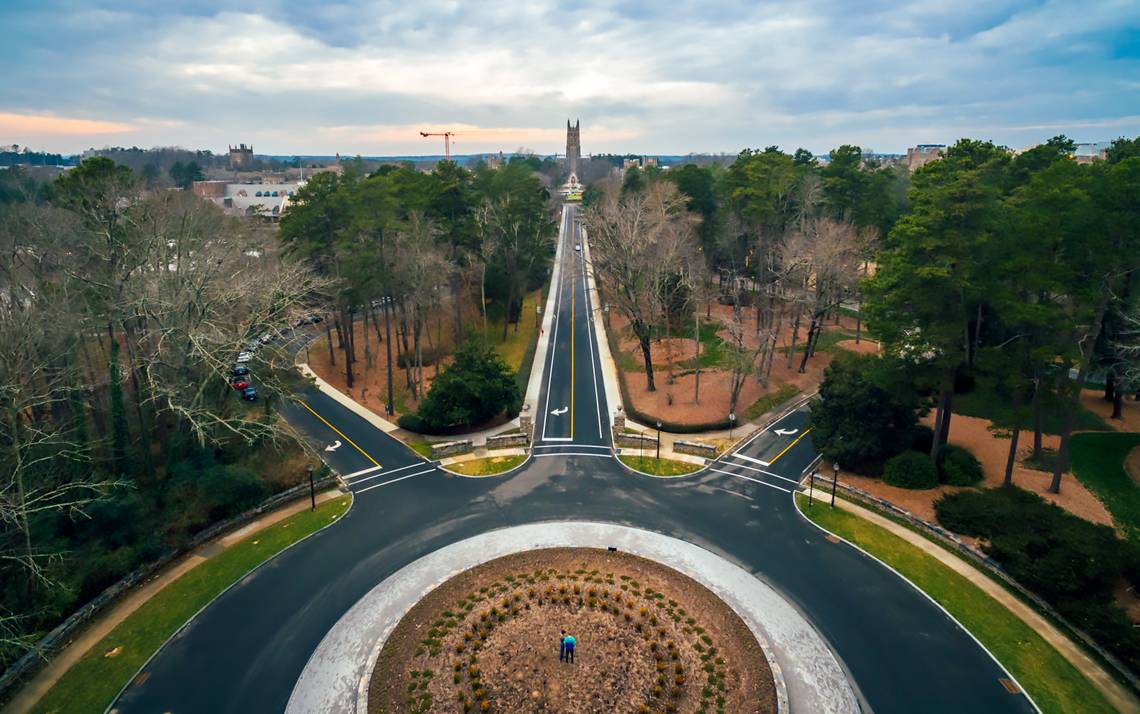Duke Unveils Guidelines for On-Campus Drone Use
Students, employees and hobbyists should consult interim policies

At Duke, researchers at Beaufort’s Marine Lab have used drones to track seals and sea turtles and to study barrier island formations, offering unique vantage points from above that make their jobs easier.
And Maurizio Forte, the William and Sue Gross Professor of Classical Studies, has made drones a fundamental part of his archeological research. While he once needed to rely on overhead images from satellites, Forte has found a time saving, cost efficient method to study sites in Turkey.
For example, Forte and his team of researchers captured 27,000 photos over five days at Çatalhöyük, a Neolithic site in Turkey. He also used drones to take numerous photos of Isaura Vetus, an ancient Turkish city unreachable by car, to create a map of the location.
“Excavation can be expensive, destructive and difficult to manage,” Forte told a collection of Duke community members Nov. 29 at the Duke Drone Workshop, an event to highlight the many uses of the aerial vehicles equipped with cameras.
With the increased value of drones in an academic setting, Duke is assessing their use on campus and has released policies applicable for community members and hobbyists who visit Duke’s campuses.
“Drones are playing an increasingly important role in many aspects of research and education,” said Lawrence Carin, vice provost for research. “The new drone policy will realize a proper balance between the opportunity of drones, while also mitigating risks to the entire Duke community, and beyond.”
On the website drones.duke.edu, Duke has issued guidance on the type of drone operations acceptable and processes for requesting permission to operate drones on Duke property or for Duke purposes, including indoor drone and outdoor drone use. The interim policies, subject to change as city, state and federal laws evolve, also require that users follow FAA regulations.
Duke community members and hobbyists interested in flying on Duke property should consult the policies for how to request to conduct flights on campus. A request form will be available beginning Jan. 4, 2017. Requests for on-campus use of drones will specify purpose and location and will be reviewed for viability and safety.
Duke has applied for and received an exemption under Section 333 UAS, which requires a pilot’s license. However, many of uses at Duke are likely to fall under Part 107 rules, which require a “remote pilot airman certificate with a small UAS rating.” Additional state regulations - which include a knowledge test - can be seen here.
All potential use of drones, including small drones and model aircraft, on university property must additionally follow Duke-specific procedures as specified in the drone policy.